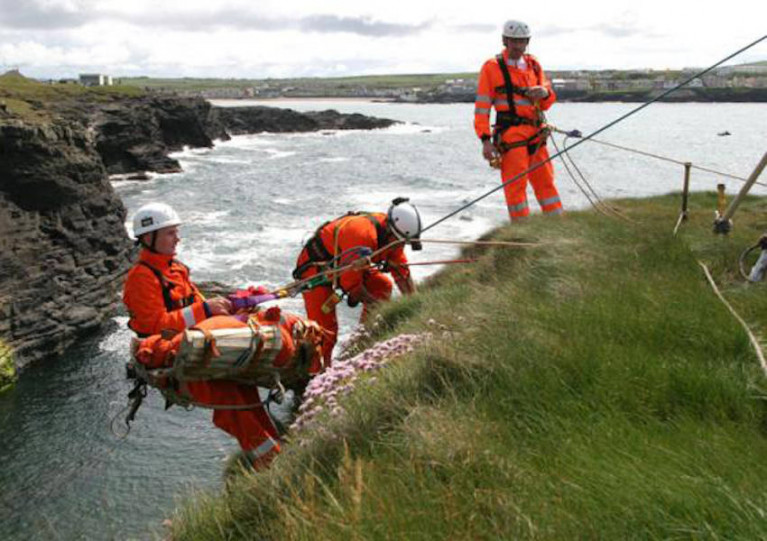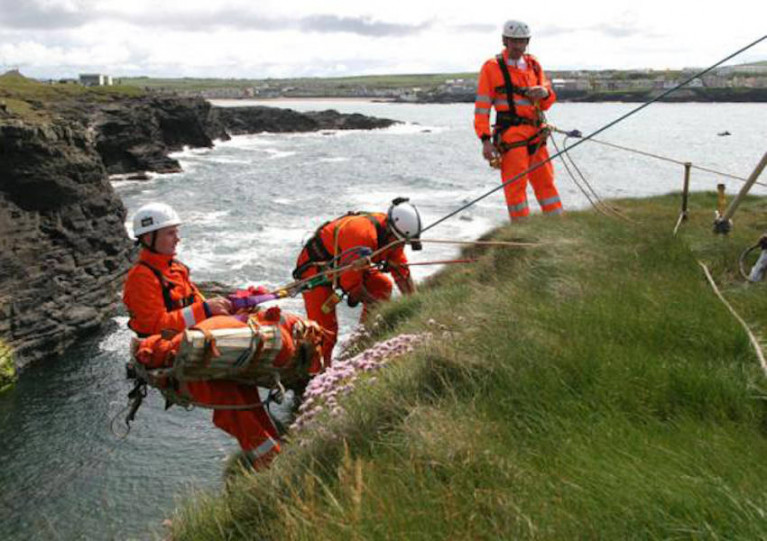Displaying items by tag: Cliff Rescue
The Irish Coast Guard has cited safety reasons for its temporary suspension of cliff rescues, as RTÉ News reports.
A spokesperson said the move is in line with its safety management system “and the function will be resumed when it has been is deemed safe to do so”.
Areas affected by the suspension will be serviced by existing coastguard units and the SAR helicopter network, the spokesperson added.
The move comes just weeks after some coastguard cliff rescue team members claimed they had not received any training in six months amid pandemic restrictions, as previously noted on Afloat.ie.
Irish Coast Guard Says Training Needs ‘Will Be Addressed’ as Some Units Claim Members Haven’t Trained in Six Months
Irish Coast Guard training needs “will be addressed” after units expressed concerns about their safety with exercises suspended under lockdown, as TheJournal.ie reports.
While limited coastguard training resumed earlier this month, the likes of cliff units have not been able to take part in in-person training since Level 3.
And it’s been claimed that some members of the specialist cliff rescue teams have not received any training in six months.
TheJournal.ie has much more on the story HERE.
Howth Coast Guard Rescues Man After Cliff Path Fall
#Howth - The Irish Coast Guard cliff rescue team at Howth sprang into action yesterday afternoon (Saturday 16 July) after reports that a man in his 30s had fallen from the cliff path on Howth Head in North Co Dublin.
Working with paramedics from the Dublin Fire Brigade, the coastguard team evacuated the casualty to a waiting ambulance from the spot where he had fallen, some four metres from the cliff path near Drumleck Point.
The casualty had suffered a head injury but was conscious and breathing. He is currently being treated at Beaumont Hospital.
Howth RNLI and the Irish Coast Guard's Waterford-based helicopter Rescue 117 were also tasked to the incident but stood down.


























































